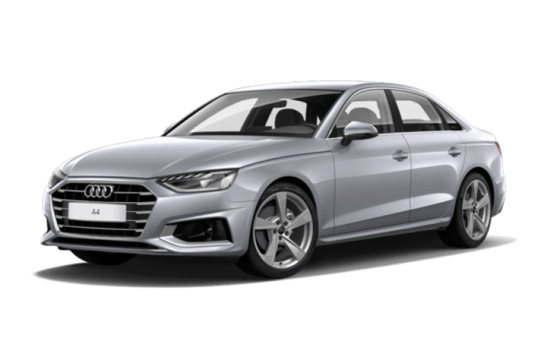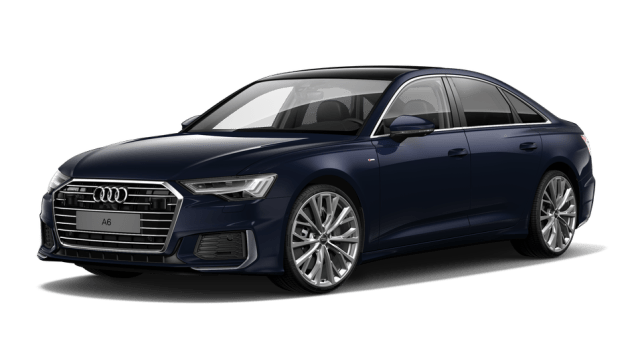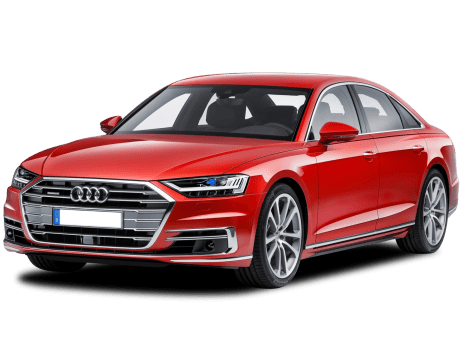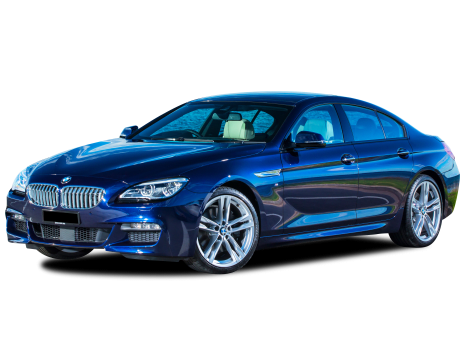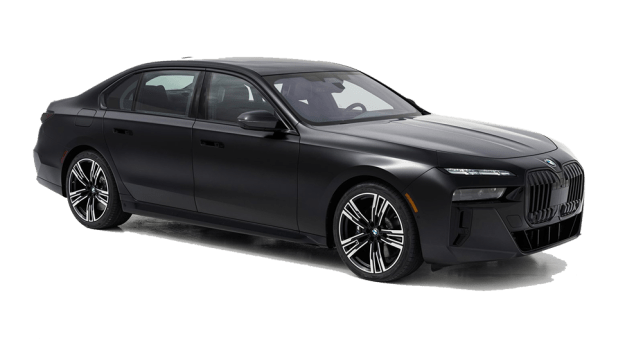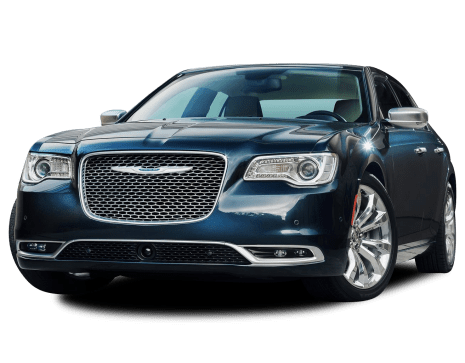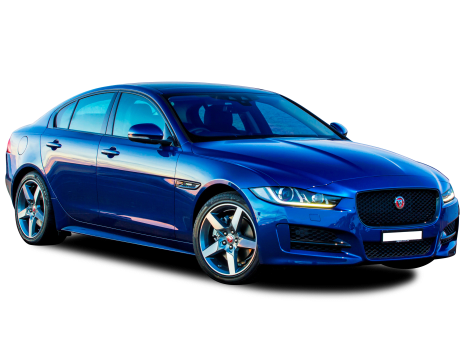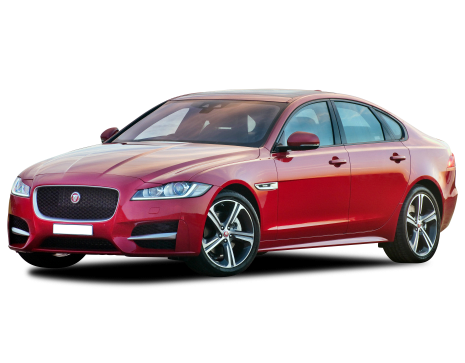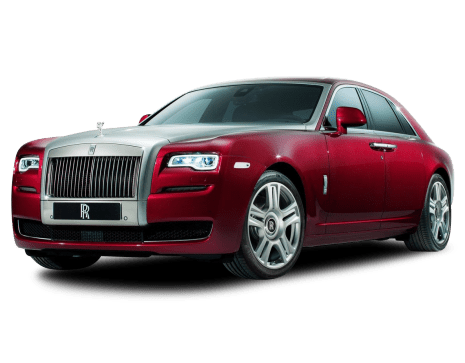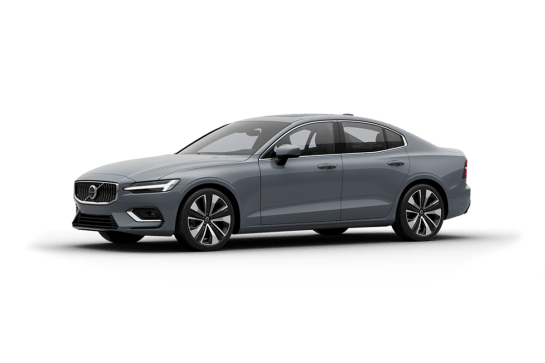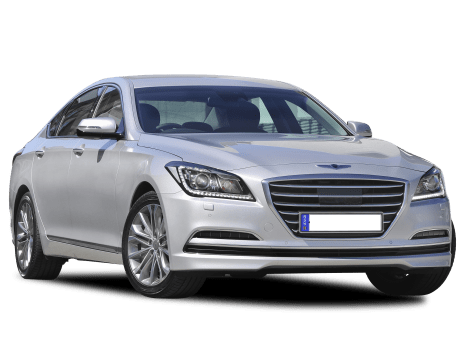
Hyundai Genesis VS BMW M5
Hyundai Genesis
Likes
- Refinement
- Comfort
- Spec list
Dislikes
- No V8 option
- No diesel option
BMW M5
Likes
- Stunning speed
- Drive mode customisation
- Impressive agility
Dislikes
- Awkward boot
- Brake and steering feel
- Low on hooliganism
Summary
Hyundai Genesis
Anybody who doubts that Hyundai is gunning for the number one in the world has rocks in their head. Big heavy ones. Korean companies do not settle for anything less than number one. The second-generation Genesis (our first taste here in the Antipodes as the gen-one had its steering wheel on the wrong side) is proof.
What's different about Hyundai's unstoppable rise is the way they're going about it. They've always done their own thing in Korea, reinventing themselves time and again when they strayed off the beaten path.
The Genesis is a gamble for a Korean company in foreign markets whose default setting for luxury is marked, Britain or Germany. If Hyundai gets the Genesis wrong there will be howls of derision, or at best patronising pats on the back - "Nice try, you'll get there one day". But if they get it right...
| Safety rating | |
|---|---|
| Engine Type | 3.8L |
| Fuel Type | Regular Unleaded Petrol |
| Fuel Efficiency | 11.2L/100km |
| Seating | 5 seats |
BMW M5
Balancing luxury car comfort, hot hatch agility and supercar speed is no easy task, yet that is what made the six previous generations of BMW's M5 so iconic.
In seventh-generation ‘G90’ guise, the M5 has another skeleton in the cupboard: the toughest emissions regulations that Europe, and now Australia, have ever seen.
A twin-turbo V8 was untenable and going battery electric was not an option. Plug-in hybrid was the only answer. For the new M5, BMW combined a revised 4.4-litre ‘S68’ bent eight with a punchy electric motor for 535kW and 1000Nm.
Read more about
- Game-changing electric SUV takes shape in leaked drawings: 2026 BMW iX3 revealed as Audi Q5, Mercedes-Benz GLC rival but will new family SUV go EV-only or offer petrol as well like spied 3 Series sedan?
- Eye-watering 405kW track-ready performance wagon arrives: 2025 BMW M3 CS Touring leaves Audi RS4, Mercedes-Benz C63 AMG in its dust
- 'We're on their map': How Aussie fast-car lovers could shape future planning for global BMW M models thanks to huge local enthusiasm for cars like the M3 Touring and M4 CS
Problem is, the G90 is widely acknowledged as one of the greatest BMW M cars of all time, especially in CS trim. And thanks to a circa-600kg weight hike to nearly 2500kg, the new M5's 0-100km/h claim is actually slower than the old 'F90' M5.
Doesn’t exactly sound like a big leap forward, does it?
A drive through the Central West of NSW and around the iconic Mount Panorama racing circuit gave us answers to two questions. Does the M5 work on Australia roads, and does BMW M's latest super-sedan represent progress?
| Safety rating | — |
|---|---|
| Engine Type | 4.4L turbo |
| Fuel Type | Hybrid with Premium Unleaded |
| Fuel Efficiency | 10.3L/100km |
| Seating | 5 seats |
Verdict
Hyundai Genesis8.6/10
The Genesis is not quite a match for cars twice its price but it makes you think what's possible. It doesn't have the dynamic brilliance of a BMW or the self-assured faultless execution of a Mercedes. Lexus ought to be worried, though - why would you have an LS when you could have this? The only answer is 'badge'.
The Genesis is an epoch-making car for the Korean manufacturer. As the company has got better, there are fewer excuses for overlooking it. While the Genesis is pitched into a shrinking market, it's not really meant for the average i30 buyer to buy, but to see.
It's bristling with tech and is not only a halo car but a shot across the bows of both Lexus and the Germans. Attached to that shot is a note: "We're coming for you." In other words, Hyundai got it right.
BMW M58.5/10
Let’s get one thing out of the way: the new M5 is a very good car. Considering the emissions limitations and size increase of its base model, it is an impressive bit of engineering.
What’s trickier is deciding whether the new car is really better to drive. Less edgy but supremely comfortable and quiet; BMW leaned into the daily usability of the plug-in hybrid M5 rather than amping the petrol-electric system for maximum thrills. And do you know what? That’s fine with me.
The new M5 still performs on road and track and does an incredible job of hiding its weight (most of the time). Perhaps the G90 is a little more Audi RS6 than F90 in its demeanour but some would argue that’s no bad thing.
The concept of the BMW M5 is not static, it evolves with the times, and the G90 is no exception. Expect future Competition and CS variants to unlock some extra lunacy.
Note: CarsGuide attended this event as a guest of the manufacturer, with meals provided.
Design
Hyundai Genesis8/10
The Genesis is like no other Hyundai. For a start, it's gigantic - it looks easily as big as a BMW 7 Series (it isn't) with the road presence to match. There's a lot of BMW from most directions, but with a sharper approach to the creasing and character of the sheet metal.
Towards the rear it's more BMW 6 Series Gran Coupe and is all the better for it. The style is understated and technocratic.
The big wheels from the Ultimate pack help make it look lower and sleeker, too.
Inside is also very Germanic, but with a bit more of a Lexus feel. Our car had the lighter leather which meant that the wood and the metal materials didn't necessarily work well together.
The interior is expertly put together and feels like it will last forever.
The only jarring moment is the gear selector is shared with our long-term Hyundai i30 - it looked a bit cheap in what is otherwise a beautifully executed cabin - it needs more heft.
On Australian-delivered cars there is just one Hyundai badge, sitting proudly on the boot - you get the feeling this was debated long and hard and when the decision was made to go for it, a big one was chosen.
However, the winged Genesis branding takes pride of place everywhere else. When you approach the car at night and the puddle lamps come on, the Genesis logo is projected on to the ground, crisp and clear.
BMW M5
The M5’s raw size is what you notice first. The G90 M5 is a whopping 113mm longer, 67mm wider and 37mm taller than the car it replaces, with the wheelbase stretched 24mm.
It is also the most pumped M5 yet, compared to a 520i it is 70mm chubbier at its flared wheel arches. The ‘M5’ insignia on the C-pillar means you’ll know this is the fast one.
Presence is not in question, then, but beauty? Not the right word. The G90 makes its predecessors — especially the original ‘E28’ — look demure.
The cabin layout builds on the concept debuted by the iX electric SUV, with twin integrated screens and focus on technology and minimal buttons. Materials are mostly high quality and feel fitting for the M5’s asking price.
Practicality
BMW M5
BMW has persevered with its twin-screen, minimal-button approach for its 'Operating System 8.5' in the M5.
The 14.9-inch central touchscreen is bright, responsive and high resolution but the software remains a little strange. The main interface is classy but when looking for settings to adjust you’re presented with a Windows 95-esque panel of small square touch targets. It’s not intuitive.
Wirelessly mirroring Apple CarPlay or Android Auto works a treat, at least. Digital climate controls keep temp adjustment persistently on screen and a shortcut to fan speed. The nipple-like vent direction adjustment grows on you, as do the digital vent sliders.
The 12.3-inch digital driver’s display still doesn’t have the freedom of customisation and clarity of Audi’s interface.
The M5 has two cupholders, a deep central storage cubby, door bins that swallow two 600mL plastic bottles and twin wireless charging pad that resolutely grips smartphones even under the sort of tummy-churning G-Forces this M5 can manage.
Setting the M5 apart from the regular sedan is a unique centre console bunching 'M Drive' modes, 'M Hybrid' modes and other shortcut functions together next to the gear toggle and M-engraved crystal 'iDrive' controller.
Comfortable front seats are power adjustable with in/out, up/down lumbar support and have two memory positions.
The 5096mm long M5’s back seat is very spacious. Headroom is good for those beyond 182cm (six-foot), the bench is extremely supportive, while leg and toe room are adequate.
A fold-down centre armrest has two cupholders and there are USB-C charge ports in the back of each bucket seat for a total of four.
You can buy an accessory mount that holds tablets or smartphones for rear seat passenger entertainment, too.
When you look in the boot, BMW offering a Touring version of the latest M5 makes even more sense. The load aperture is big but the usable space is narrow; the sides intrude on load space.
The 466-litre space will make fitting suitcases for an airport run tricky and, even with the 40/60 split-fold rear bench, you will struggle to fit a bike in the back. There’s no spare tyre, either.
Price and features
Hyundai Genesis9/10
The only way to describe the Genesis' pricing is aggressive - kicking off at $60,000, it's the most expensive Hyundai money can buy, but with a spec list like this, you won't feel at all short-changed.
Your sixty large buys you a huge cabin with a seventeen speaker stereo, auto headlights and wipers, LED ambient lighting inside and out, dual-zone climate control, keyless entry and start, powered front seats which are heated and cooled, satnav, front and rear parking sensors, and plenty of other bits and pieces.
Our car had the $22,000 Ultimate package, adding 19-inch alloys, blind spot sensor, front and side cameras, around-view display, real leather, more adjustments for the driver's seat, ventilated seats in the front, heated rear seats, panoramic glass sunroof, acoustic glass, heads-up display, powered bootlid and LED foglamps.
You can have a lot of the more useful features in the $11,000 Sensory Pack. It's a good middle ground that, for example, features the excellent heads-up display.
The 9.2-inch screen splits the asymmetric air-conditioning vents. The software is unique to the Genesis and a huge leap forward over the rest of the Hyundai range - classy, smooth graphics, a good responsive screen.
You control the seventeen speaker stereo from here, which kicks out a rich sound and an impressive Bluetooth performance - rear seat passengers can also run the stereo from their armrest. The satnav is detailed and chatty, while the excellent heads-up display shows a configurable information set in strong, clear graphics.
BMW M5
The last M5 was well equipped but the new car is wanting for nothing. Australian cars have just about every option for $259,900, before on-road costs.
Australian M5s wear staggered 20-inch front and 21-inch rear alloy wheels paired with standard metallic paint, 'M Carbon Exterior' package (including carbon roof and rear lip spoiler), adaptive LED headlights and BMW’s 'Iconic Glow' illuminated kidney grille surrounds.
Keyless entry, a heated steering wheel, heated and ventilated front seats, interior camera, powerful 18-speaker Bowers & Wilkins sound system, M seatbelts, four-zone climate control and a power tailgate are the cabin highlights.
Optional extras are thin on the ground; you can choose from (eight) no-cost paint colours and all manner of 'Individual' shades (from $4100), four interior trims including classy 'Dark Oak' wood and four leather colours. There’s classic black ‘Merino’ leather, or you can have it dyed with a mix of 'Silverstone', red or 'Kyalami Orange'.
Aside from that, the only major option is carbon ceramic brakes at a staggering $18,500, and an M5 Touring wagon costs $263,900.
Though the M5 is more expensive than Audi’s closest rival, the RS6, the gulf isn’t huge considering you get a lot more punch in the BMW. Mercedes-AMG does not have an E-Class answer, yet.
Good value, then? Well, an equally potent Porsche Panamera is twice the price. So yes, in a sense.
Under the bonnet
Hyundai Genesis9/10
The Genesis is powered by Hyundai's own 3.8-litre V6 developing 232kW and 397Nm, mated to Hyundai's eight-speed automatic transmission.
Despite weighing just under two tonnes, the Genesis completes the dash to 100km/h in 6.5 seconds.
It has a claimed 11.2L/100km on the combined cycle. In what must be a first, we got below that, averaging 10.8L/100km over two weeks. And that's without stop-start fuel-saving to blunt the effect of lot of city driving.
We'd still like to try the V8 - only available in left-hand drive markets - though.
BMW M5
Unlike the Mercedes-AMG C63, BMW has kept the M5’s eight-cylinder heart and this has proven to be a good decision.
The 4.4-litre twin-turbo petrol engine has been optimised with “a cross-bank exhaust manifold and optimised oil separation”, says BMW.
The V8 spins to 7200rpm though it isn't a screamer, outputting a full-bodied 430kW (5600-6500rpm) and 750Nm (1800-5400rpm).
Augmented with a transmission-mounted 145kW electric motor that can produce up to 450Nm, thanks to pre-gearing, maximum combined outputs are 535kW and 1000Nm.
Weight blunts punch, though, so despite nearly 100kW and 250Nm more, the new M5 is a tenth slower to 100km/h than its predecessor (claimed), at 3.5 seconds for the sprint.
You can thank a 220kW/tonne power-to-weight ratio, worse than the old car's 233kW/tonne figure. The new G90 claws some time back with brute force, hitting 200km/h in just 10.9 seconds and goes on to a limited top speed of 305km/h.
You can choose from five powertrain settings, starting with 'Electric' and 'Hybrid' for everyday use, while 'eControl' lets you store battery power for urban use.
'Dynamic' provides the best balance, says BMW, while 'Dynamic Plus' is like a qualifying mode. Think maximum combined punch for up to 10 minutes, at which point you’ll have drained the battery.
Driving in pure electric mode, the take-off can be a little jerky but the quietude and decent power make it pleasant. Power sources are combined expertly in Hybrid and giving it some stick in Dynamic is more than enough to make your passengers feel queasy.
Efficiency
BMW M5
Electric-only range is rated up to 69km in WLTP testing, but the 18.6kWh battery is more likely to give you around 60km in real-world driving. It can be topped up in about two hours using an 11kW AC charger, or overnight on a three-pin socket.
BMW includes both Mode 3 (public) and Mode 2 (home) charging cables with the M5.
The M5 uses 3.2L/100km of 98 RON premium unleaded in ADR testing, corresponding to just 72g/km of CO2, so it should sail through the first rounds of Australian emissions regulations.
Indulging in what the V8 has to offer sees that consumption spike, though. An enthusiastic road drive saw the M5 gulp 12.4L/100km, according to the trip computer.
Driving
Hyundai Genesis8/10
At five metres long, with a ride firmly pitched in the luxury camp, the Genesis is not going to tempt you into a track day, even with rear wheel drive.
Blindfold your passengers and swap them between a Lexus, a BMW and a Genesis and the overwhelming impression they'll get is one of incredible smoothness.
Sitting in the back of the Genesis, it's easily as good as the German and luxury Japanese competition. The seats are hugely comfortable, there's ample head, leg and shoulder room and it feels lot nicer than anything within a bull's roar of its price.
No matter where you sit, it's an incredibly quiet car. The engine is a distant whoosh, the tyre noise muted and there's almost no wind or ambient noise. It's supremely comfortable and the excellent stereo will wash away what little noise does invade.
It certainly feels its weight from the driver's seat, with a competent, soft turn-in, but if you're wanting sudden movements, this isn't the car for you.
On fast flowing roads you can have some fun, but things will get floaty and that will quickly kill that fun. The ride and isolation from the rest of the world is completely worth it.
BMW M5
The three M5 elements start with daily usability. We trundled out of Bathurst in electric mode, with the adaptive dampers (and other myriad settings) in Comfort.
The M5 has steel springs, double wishbone front suspension and a five-link rear axle, all of which has been heavily reworked by the boffins at M. Naturally, the ride is firm, though in Comfort the body moves through its motions smoothly.
The M5 is an effortless tourer, its eight-speed automatic shmoozing through ratios as it climbs and descends steep gradients. Wind and tyre noise insulation is good on coarse chip tarmac, though a bit more burble from the V8 would be appreciated.
The M5 has nine adjustable parameters to wake it up: 'Drivetrain', 'Energy Recovery', 'Drivelogic' (gear shift aggression), 'Chassis', 'Steering', 'Brake', 'M xDrive', stability control settings and 'M Sound'. Favourite settings can be stored to the wheel-mounted M1 and M2 buttons.
With the dampers still in Comfort the M5 remains fantastically capable with power delivery from the xDrive mighty rewarding on corner exit. Sport dampers sharpen the experience up further, amplifying the M5’s surprising agility. Thank the rear-wheel steer for this big sedan’s switchback performance.
Step beyond the limit of grip, brake too late, or get on the power too early, though, and the M5’s mass reveals itself rapidly. It doesn’t help that the accurate steering is devoid of feel. The brake-by-wire pedal is too numb and light, as well, making it tricky to judge grip levels on the road.
Feel is less of an issue on a dry Mount Panorama circuit, where the M5 turns out to be a total pussycat. The all-wheel drive, consistent dynamics, strong brakes and well-tuned stability control make for an approachable but seriously fast sedan.
The responsive transmission will hold gears to redline and is eager on the downshift in its most aggressive setting while tactile shift paddles make commanding ratio changes yourself that bit more engaging.
Prodigious punch out of corners is matched by the impressive consistency of the carbon ceramic brakes. The M5 pulled up for The Chase every time with minimal fuss, even from above 250km/h.
Similar credit goes to the 285mm front and 295mm rear Hankook S1 Evo tyres which remained consistent and predictable all day despite reaching temperatures over 130 degrees, according to the tyre pressure monitor.
Safety
Hyundai Genesis9/10
Nine airbags, traction and stability control, lane departure warning, forward collision control, ABS, brake force assist and distribution and traction and stability control bring the ANCAP count to five stars.
The Sensory and Ultimate packs add blind spot sensors and around view cameras.
BMW M5
The regular BMW 5 Series range scored a maximum five stars in 2023 ANCAP safety testing but this does not apply to the M5.
The M5 features nine airbags and a host of active safety systems, including auto emergency braking (AEB), blind-spot monitoring, rear cross-traffic alert, lane-keep assist, auto parking and speed limit assist.
Lane-keep can easily be turned off via two taps but the other systems require more menu navigation, though are mostly unintrusive. A 'Track' mode disables lane-keep, AEB and other systems along with switching the central display off.
Ownership
BMW M5
In Australia, BMW has moved to match other manufacturers in offering a five-year/unlimited kilometre warranty on all its cars.
Servicing is recommended on a condition basis, with the M5’s multimedia system prompting a visit to the mechanics. BMW offers pre-paid service packs for five years/80,000km at a price of $5059 for the basic offer and $8152 for 'Inclusive Plus', which covers brake pad and rotor replacements.
It is expensive next to a regular 5 Series but when you consider the purchase price and performance level, the M5’s service pricing is not astronomical.


